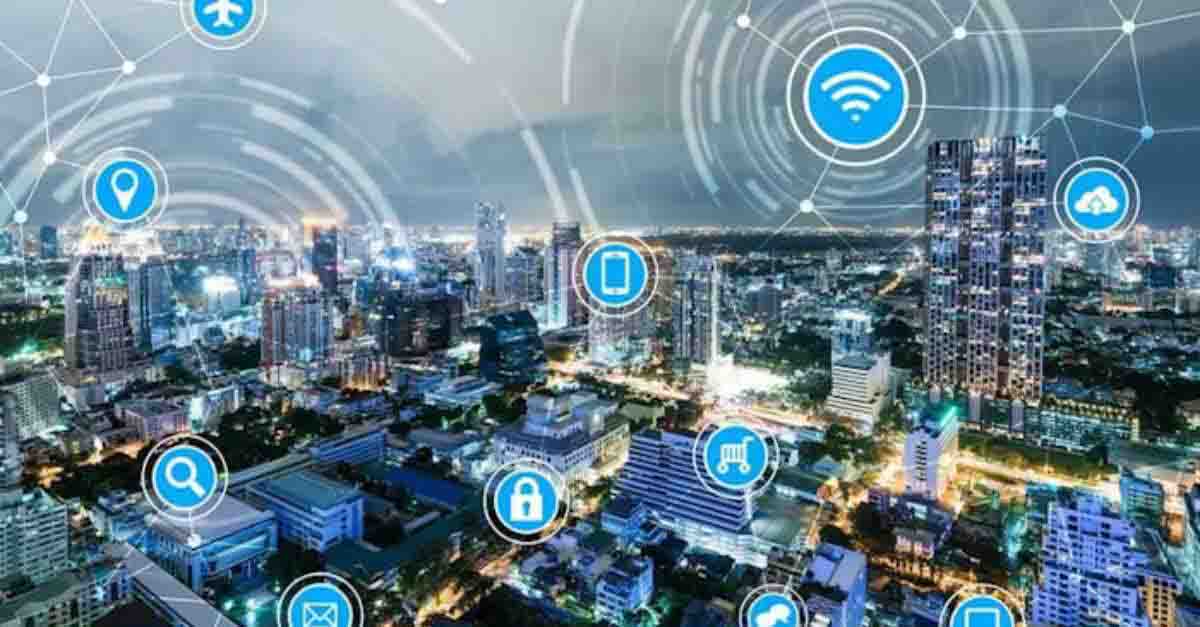
Essentials of an IoT Remote Monitoring Platform: Introduction
Explore the essentials of IoT remote monitoring in this introduction.
Solutions
Workplace Management Solutions
Real Estate Management Solutions
Maintenance Management Solutions
Energy Management Solutions
Engineering Document Management Solutions
Asset Management Solutions
Automate campus scheduling for classes, meetings, and exams with our EMS software.
Plan and manage conferences effortlessly with EMS software to impress guests and streamline operations.
Boost workplace flexibility and maximize space use with seamless desk and room booking.
Organize workplace or campus events smoothly, creating memorable experiences.
Optimize workspace, manage allocations efficiently, and reduce costs with our space management solutions.
Deliver projects on time and within budget by improving communication, collaboration, and efficiency with our software.
Streamline lease accounting for ASC 842, IFRS, and GASB compliance.
Manage leases efficiently by tracking key dates, analyzing costs, and ensuring compliance.
Centralize data and analytics for better insights, faster negotiations, and revenue growth.
Centralize facility and asset maintenance, automate work orders, and ensure compliance with our CMMS software.
Extend asset life, reduce downtime, and prevent costly repairs with data-driven monitoring.
Prevent equipment failures and extend asset life by detecting and addressing issues early.
Make sustainable, cost-efficient energy decisions by monitoring and optimizing power consumption.
Remotely monitor and control equipment with real-time data to predict issues, boost efficiency, and reduce downtime.
Easily share and collaborate on documents, creating a single source of truth for engineers and contractors.
Manage and analyze assets across their lifecycle to schedule maintenance, reduce downtime, and extend lifespan.
Improve visibility, automate work orders, and ensure compliance for efficient facility and asset management.
Resources
Browse our full library of resources all in one place, including webinars, whitepapers, podcast episodes, and more.
Support
Looking for access to technical support, best practices, helpful videos, or training tools? You’ve come to the right place.
About Accruent
Get the latest information on Accruent, our solutions, events, and the company at large.

IoT remote monitoring helps companies manage their assets remotely, in real-time, with devices and sensors that collect data and transmit it over the internet.
In today's fast-paced world, businesses need to monitor and manage their assets and operations efficiently and effectively. That's where IoT remote monitoring comes in. IoT remote monitoring allows businesses to track and manage their assets and infrastructure remotely, in real-time, by leveraging connected devices and sensors that collect data and transmit it over the internet.
IoT remote monitoring is a technology that allows businesses to monitor and manage their assets and infrastructure remotely. This technology uses connected devices and sensors that collect data about various environmental conditions, such as temperature, humidity, pressure, motion, and other factors that can impact the performance of machinery or the safety of people in a location.
The data collected by these devices and sensors is then transmitted over the internet to a centralized system for analysis, visualization, and control. The system can be accessed by a team member from any location, allowing them to monitor and manage assets and operations in real-time, identify issues as they arise, and take corrective action to prevent downtime, reduce costs, and improve performance.
Here are some examples of how Accruent's IoT remote monitoring software can help businesses.
Retail: In retail, Accruent's IoT remote monitoring solution can be used to monitor the performance of refrigeration and HVAC systems. By monitoring these systems remotely, retailers can ensure that their products are stored at the correct temperature and humidity levels, and can address any issues that arise quickly. This can help reduce waste, improve customer satisfaction, and minimize maintenance costs.
Facilities Management: In facilities management, Accruent's IoT remote monitoring software can be used to monitor the performance of critical building systems, such as HVAC, lighting, and security. By monitoring these systems remotely, facility managers can identify potential issues before they cause downtime and optimize their operations to improve energy efficiency and reduce maintenance costs.
Manufacturing: In manufacturing, Accruent's IoT remote monitoring solution can be used to monitor the performance of equipment and machinery, such as production lines and conveyor systems. By monitoring these systems remotely, manufacturers can identify potential issues before they cause downtime and optimize their operations to improve efficiency and productivity.
IoT remote monitoring is a powerful technology that enables businesses to monitor and manage their assets and operations remotely. By leveraging connected devices and sensors, businesses can collect data in real-time, analyze it, and take corrective action when necessary to improve efficiency, reduce costs, and improve safety and compliance. As IoT remote monitoring becomes more widely adopted, businesses in all industries will be able to take advantage of its benefits to stay ahead of the competition and succeed in today's rapidly changing business environment.
By leveraging IoT remote monitoring, businesses and organizations can achieve several benefits, including:
Overall, IoT remote monitoring empowers businesses and organizations with greater visibility, control, and efficiency by leveraging the capabilities of connected devices and IoT technologies.
Remote data monitoring refers to the process of collecting and analyzing data from remote locations or devices in real time. It involves the use of IoT devices, sensors, and communication networks, to gather data from various sources and transmit it to a centralized system for analysis and monitoring.
In remote data monitoring, sensors or devices are placed in remote or inaccessible locations, such as industrial sites, infrastructure networks, or environmental monitoring stations. These sensors collect data such as temperature, pressure, humidity, vibration, energy consumption, or any other relevant information depending on the application.
The collected data is then transmitted over communication networks, such as cellular networks, Wi-Fi, or satellite, and is then processed, analyzed, and visualized to provide insights. This can involve applying data analytics techniques, machine learning algorithms, or statistical analysis to derive meaningful information from the collected data.
IoT devices are designed to be operated remotely. One of the key features of IoT technology is its ability to enable remote access and control of connected devices. This means that you can monitor, manage, and control IoT devices from a remote location using a computer, smartphone, or other internet-connected devices.
Depending on the capabilities of the IoT device, you can remotely control and automate its operations. For example, you can remotely turn on/off lights, adjust temperature settings, lock/unlock doors, or activate specific functions of a connected device through the IoT platform or mobile applications.
IoT devices can be configured to generate alerts or notifications based on predefined events or thresholds. These alerts can be sent remotely to your smartphone, email, or other communication channels, keeping you informed about critical events or situations that require your attention.
IoT devices can be integrated with other systems or applications, allowing you to operate them remotely as part of a larger ecosystem. For example, you can integrate IoT devices with home automation systems, security systems, or enterprise software to enable centralized control and management.
IoT devices often require periodic software updates and maintenance. These updates can be deployed remotely, ensuring that the devices are running the latest firmware versions, security patches, or performance enhancements.
Explore the essentials of IoT remote monitoring in this introduction.
Learn how IoT remote monitoring can positively impact your facilities management systems.
Learn how to harness the power of Big Data, IoT remote monitoring, and mobile tools to transform your retail operations.
Subscribe to stay up to date with our latest news, resources and best practices